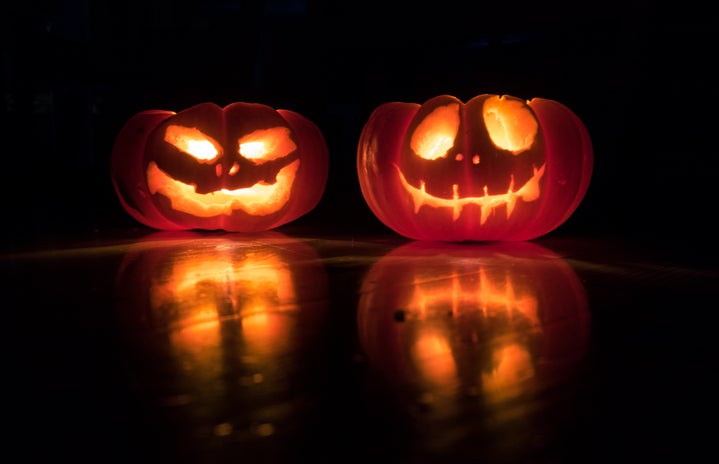line-height:20.0pt”>
It’s that time of year again: the air smells of pumpkin spice, the leaves are turning a deep orange, and leggings are an essential item in your everyday wardrobe. Along with the start of Fall comes everyone’s favorite time of year, Halloween!
We live in a college town, and as we all know, Halloween is no joke. There are countless house parties, local events, and festivities that are sure to keep you plenty spooky the entire weekend, which only means you need a killer costume–maybe even a few of them.
Halloween is a holiday about glorifying all things ghoulish and scary, a day to dress up in a costume for the sake of having fun. But it’s important to remember that with dressing up comes huge responsibility. Unfortunately, the fun can come at the expense of others and what’s truly scary is the unchecked racism that there is on Halloween.
It’s important to be aware of your costume selection because whether your selection was made with innocent intentions or not, you don’t want it to spread harmful stereotypes and stigmas, which then allows for more hostile and racist perspectives.
I know what you’re thinking, “People need to learn to take a joke,” but that’s just it: these cultures aren’t a joke. Many racially, ethnically, and culturally based costumes are intended to be either “funny” or “exotic,” but the question is, what about these groups of people makes them silly or sexy?
The answer is nothing.
Racism is ingrained in our history, and by wearing these racially, ethnically, and culturally based costumes you’re reinforcing the idea that “white is the norm,” and therefore everyone outside of this category is strange, foreign, funny, and “costume-worthy.”
So all we’re asking is that you ask yourself a few thought-provoking questions before you make your spooky purchases. If a costume is based on a race, a culture, or an ethnicity different than your own, then it’s safe to assume it is racist. This means no Mexican Serapes or Sombreros, Day of the Dead Sugar Skulls, Arab Costumes, “Sexy Indians,” or Geisha costumes, to only name a very few.
Remember, if you can say to yourself “I don’t see race,” then you should consider yourself privileged to be someone who has never had to endure the misfortunate of experiencing or even witnessing racism.
Another thing to be aware of is why a costume is “funny” or “sexy. A sad majority of “funny” and “sexy” costumes are representing marginalized and oppressed groups of people. This adds to the already dehumanization of those groups. If a costume’s “humor” or “sexiness” is based only on race, ethnicity, or culture, then it sends the message that these people’s human elements are being pointed out for the sake of laughter or to make you feel more “exotic.”
Lastly, it’s important to remember you can’t just borrow someone else’s culture when it’s convenient, because that’s not how it works. It may be a “costume” to you, but you can take it off at the end of the night, and for many people this is their everyday lives. You should consider yourself privileged that you don’t have to live with stereotypes and stigmas associated with you and your culture.
A huge example of this of course is Blackface, but don’t be fooled, that’s not the only way to come across racist. Wearing things like afros and dreadlocks may seem “fun” on Halloween, but your silky straight hair will never be subject to look “unpresentable” and you’ll probably never be forbidden to wear the hair that naturally grows atop you head. Afros and locks aren’t a mockery, or a trend that you can utilize when you feel like making a statement. By wearing cultures that aren’t yours as a costume, you are subjecting those very people to the threats associated with those stereotypes and belittling the experiences they face on a daily basis.
Pointing out racism isn’t intended to make you feel bad, but to help better our society. It’s 2015 and we’re all smart college students. Have a fun and safe Halloween, but remember to be respectful, aware, and informed!

